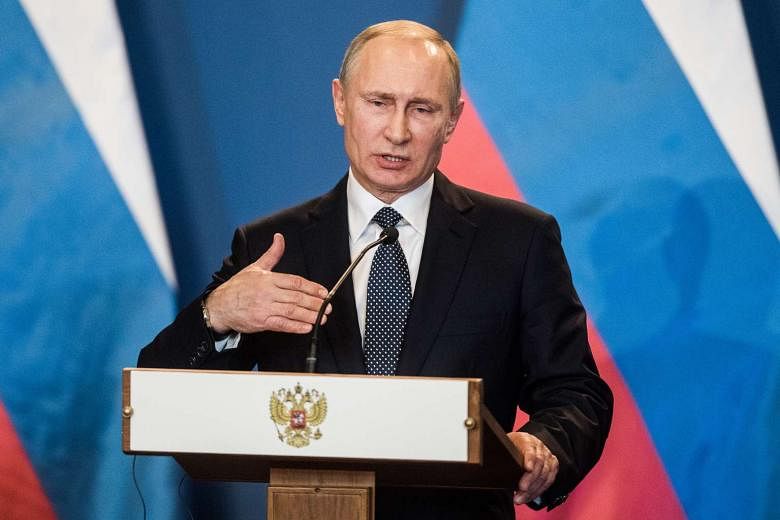MOSCOW (REUTERS) - Russian President Vladimir Putin on Tuesday (Feb 7) signed a new law easing some penalties for domestic violence, a move which has alarmed women's rights campaigners who fear it will encourage abuse.
The law reduces battery of a relative to a civil offence instead of a criminal one in first instances, when the victim suffers no serious harm.
The Guardian reported that from now on, people who beat their spouses or children and cause bruising or bleeding but not broken bones could be given a 15-day jail term or fine if the beatings do not happen more than once a year.
Previously, such an offence carried a maximum jail sentence of two years, the report said.
Those who support the new legislation, including members of Mr Putin's United Russia party, say they want to protect parents' right to discipline their children and to reduce the state's ability to meddle in family life.
They say anyone who inflicts serious physical harm will still be criminally liable.
In a statement on its website, the Kremlin said Mr Putin had signed the law after it was approved by both chambers in Russia's parliament. The State Duma, or lower house of parliament, passed the bill in January in its second of three readings by 385 votes to two.
Critics say the move is a step backwards which will exonerate "tyrants in the home" and discourage victims from reporting abuse.
Each year, about 14,000 women die in Russia at the hands of husbands or other relatives, according to a 2010 United Nations report.
The Guardian quoted Ms Alena Popova, an activist who has campaigned against the law, as saying it would be fine to pass the amendments if a draft law specifically aimed at tackling domestic violence was passed at the same time.
"Passing these amendments and not passing the other law is another sign that our society refuses to take this problem seriously," she said.

